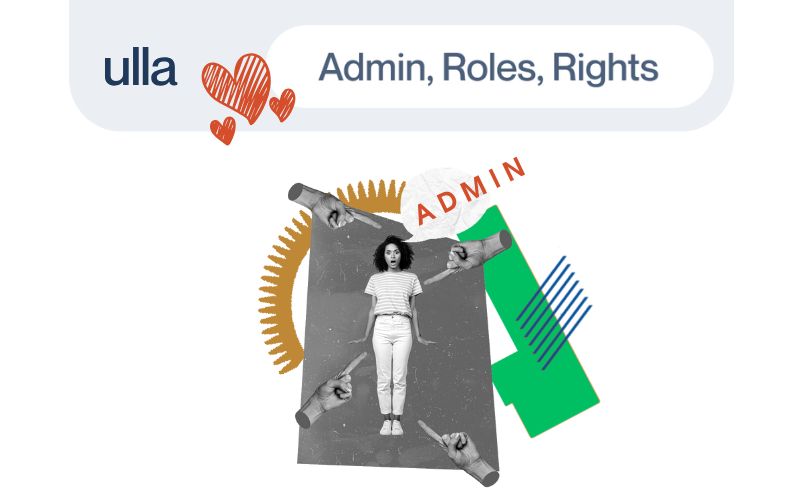Understanding Admin, Roles, and Rights in Ulla

Ulla is designed to streamline meeting documentation, whether you're using it individually or as part of an organisation. To maintain structure and security, Ulla provides different roles with specific rights and permissions. Let’s explore how admin roles and user rights work within Ulla.
Individual vs. Professional Plans
- Individual Plan: This package is designed for solo users. The user is the sole admin and has full control over all settings and functionalities.
- Professional Plan: In a workspace setting, the user who registers the Workspace automatically becomes the admin. The admin can then assign roles (either admin or user) to other members.
Admin rights and responsibilities
In the Professional package, admins have specific responsibilities that allow them to manage organisational settings effectively. However, it’s important to note that admin rights do not extend to viewing other users' meetings unless they were participants.
Admin capabilities:
- Approving or rejecting requests to join the Workspace.
- Can block users access to Workspace if needed
- Configuring integrations (e.g., Clio, Slack).
- Managing workspace-level notification settings (email notifications, Slack alerts, Clio updates, etc.).
- Assigning roles within the workspace (admin or user). An organisation can have multiple admins.
- Can change Summary template
User access and restrictions
Regardless of whether a user is an admin or a standard user, meeting access is strictly limited to those in which the user was directly involved. This applies to all roles within Ulla:
- Users (including admins) can only access meetings they were invited to - either as the organiser or as a participant.
- Admins do not have access to meetings unless they were specifically invited.
- This ensures privacy and data security within the organisation.
Ulla’s role-based structure ensures that organisations maintain control over team management and integrations while protecting user privacy. Whether you’re an admin or a user, your access remains limited to your own meetings, preserving confidentiality and making collaboration both secure and efficient.

Posted in Features on Apr 07, 2025.




